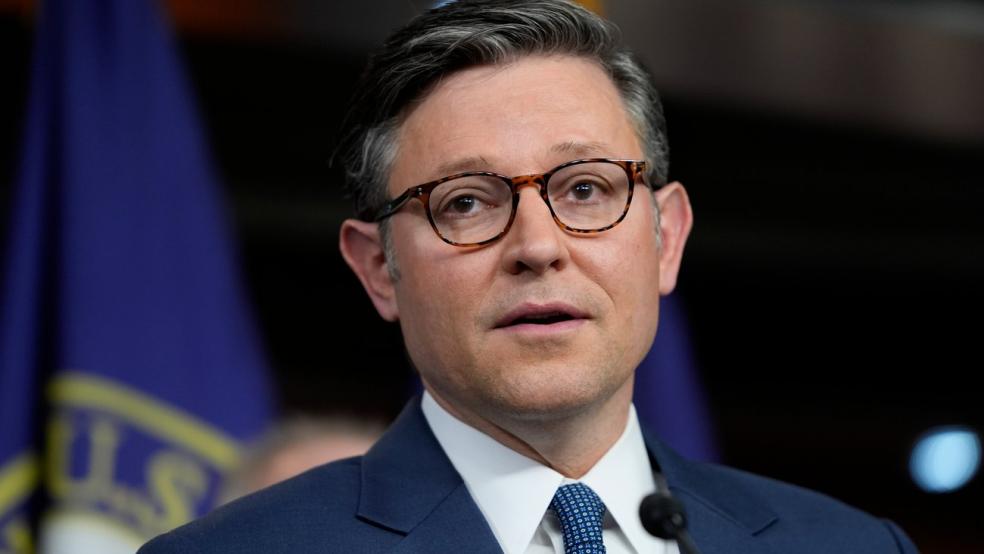The House is set to vote on a stopgap funding bill Wednesday to avoid a government shutdown on October 1. It will use a procedure that requires a two-thirds majority for passage after conservative Republicans threatened to block a more conventional path.
The legislation, which would avoid a government shutdown at the end of the month and keep federal agencies funded through December 20, is expected to pass anyway, and House Speaker Mike Johnson predicted Tuesday that it will do so “by a wide margin” — but it’s not clear yet how many members of Johnson’s party will oppose it.
Former President Donald Trump had urged Republicans to allow the government to shut down rather than pass a funding bill that does not include the SAVE Act, a GOP measure requiring proof of citizenship from voters in federal elections. The bill heading to the House floor Wednesday excludes the voting legislation after Johnson’s original plan that included it failed in the House last week.
Johnson reportedly pitched his party on the new plan at a meeting Tuesday morning, arguing that Senate Democrats might otherwise jam the House with a bill that includes more spending or other provisions and that a shutdown just weeks before Election Day would hurt the GOP with voters.
“His pitch didn’t do much to move his critics,” Politico reports, meaning that Democrats may have to do much of the heavy lifting to get the plan across the finish line.
Once the funding bill is approved by the House, it will head to the Senate and House lawmakers will head home until after the November elections.
Johnson insisted that when lawmakers return for a lame-duck session, the House will not approve one massive spending package, known as an omnibus, that rolls up the 12 required annual spending bills. Conservatives vehemently oppose such year-end packages as well as smaller groupings of several spending bills known as minibuses. They fear that party leaders will hammer out spending plans with little input from members, and that Democrats will load up such measures with their own priorities.
“We have broken the Christmas omni, and I have no intention of going back to that terrible tradition. So there won’t be a Christmas omnibus,” Johnson said at a news conference. “We don’t want any buses. We’re not going to do any buses, okay?”
That promise could set up some more drama after the elections, with another shutdown deadline just before Christmas and the end of the 118th Congress. “And it would also defy historical precedent,” The Hill’s Emily Brooks notes. “Congress has regularly passed omnibus spending bills after a funding deadline butts up against end-of-year holidays, when members are eager to quickly finish legislative business and return to their families.”
Johnson also sought to pin the blame for the lack of full-year spending plans on the Democratic-controlled Senate and Majority Leader Chuck Schumer. The House has passed five of the 12 full-year funding bills, but Republicans loaded those bills with measures that Democrats oppose, meaning they stand no chance of clearing the Senate. House Republicans also couldn’t overcome internal divisions to pass more of the required annual appropriations bills. The Senate, meanwhile has passed none of the annual bills, though it has advanced all 12 out of committee in bipartisan fashion.
“I’m going to hope, I’m going to plead, I’m going to urge the Senate to do their job,” Johnson told reporters. “This is Chuck Schumer’s fault.”
What’s next: The House vote tomorrow is expected to kick the action over to the Senate, where Schumer will need to work out a time agreement to get the legislation passed before the deadline Monday night — or before the weekend. “Most senators are fine with the ‘clean’ stopgap bill,” Politico’s Ursula Perano reports, adding that Republicans appear ready to go along. “In fact, there’s little desire among members to even work through the weekend — after all, it’s a chamber that cherishes Thursday afternoon flights out of town.”
The bottom line: Lawmakers are itching to head home for the final weeks until the election. There won’t be a government shutdown.





